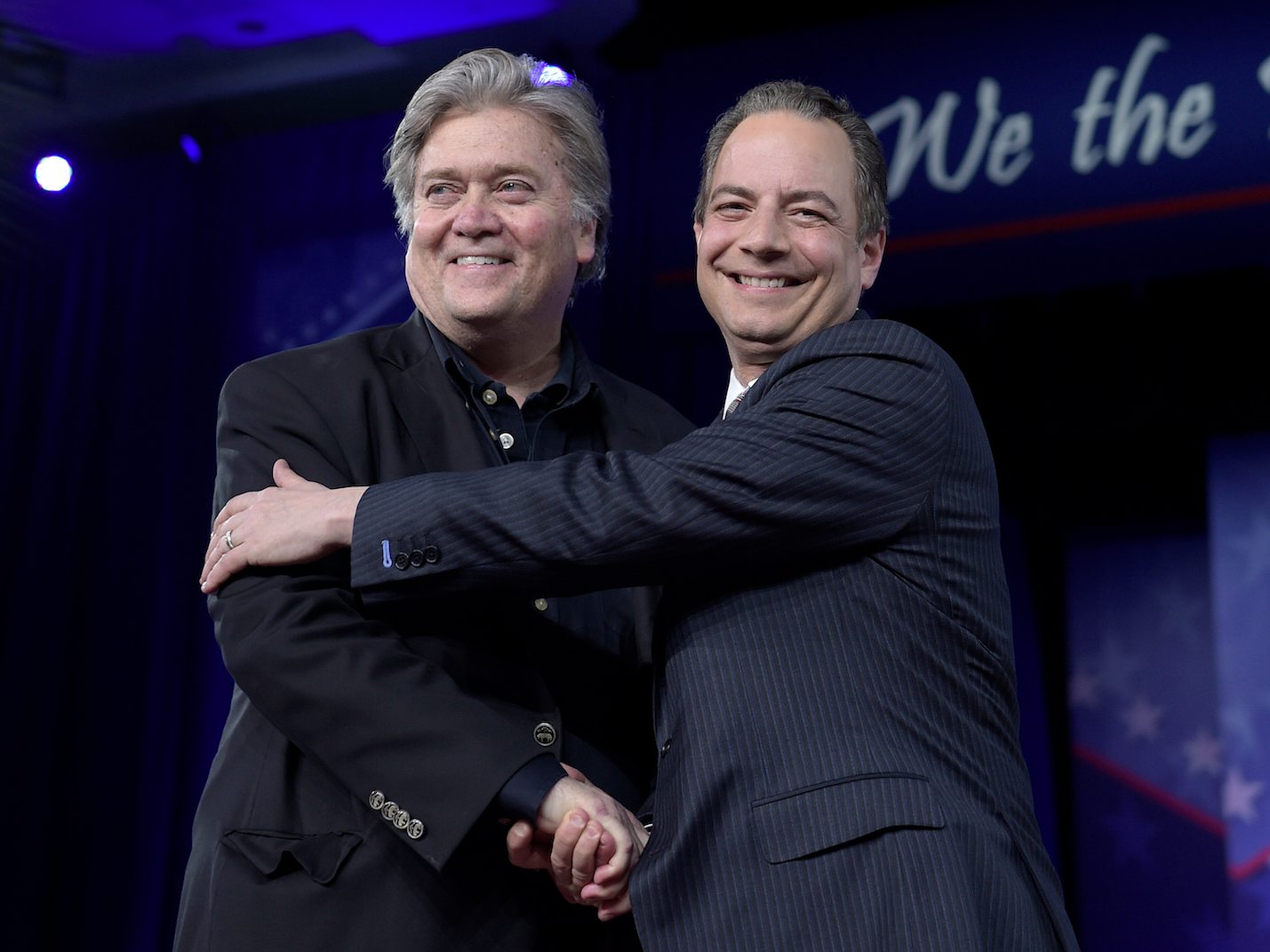White House chief of staff Reince Priebus on Thursday denied reports of clashes between him and chief strategist Steve Bannon.
Priebus told conservative radio host Hugh Hewitt that it “just isn’t the case” that he and Bannon don’t get along.
“I mean, and if anyone’s worked here, they know that Steve and I are very close, and it’s actually the opposite,” Priebus said. “And it’s something that is extremely normal, and nothing like what you would read in some of these articles. So I would just say I think we’ve got a great team.”
Soon after President Donald Trump took office, reports surfaced that Priebus and Bannon were locked in a power struggle, with Priebus representing the Republican establishment and Bannon representing more right-wing aspects of Trump’s base.
Breitbart News, the right-wing media organization of which Bannon was executive chair, even reported that Priebus was on thin ice. Bannon was reportedly “livid” with Breitbart over the report.
The day after the Breitbart story was published, Bannon and Priebus talked to The Hill in a joint phone call, insisting that they're a "united team" and there's no tension between them.
"Reince is doing an amazing job," Bannon told The Hill. "We are executing on President Trump's agenda in record time. That's because Reince is getting the job done."
Priebus echoed this message of unity in his interview with Hewitt.
"I think the president's put around him a lot of smart people that have accomplished a lot of big things in their life," he said. "And everyone works together to get to consensus, and at the end of the day, it's about advancing the president's agenda."
Priebus also said the "sort of palace intrigue stuff isn't anything unusual" with White House staff.
Priebus has been in the news again this week as the failure of the American Health Care Act has called into question his future at the White House. The Associated Press reported that Priebus is a "particularly rich target" in light of the bill's failure because his value to Trump is related to his relationship with Republican legislators, and not enough voted in favor of the Republican healthcare initiative.

